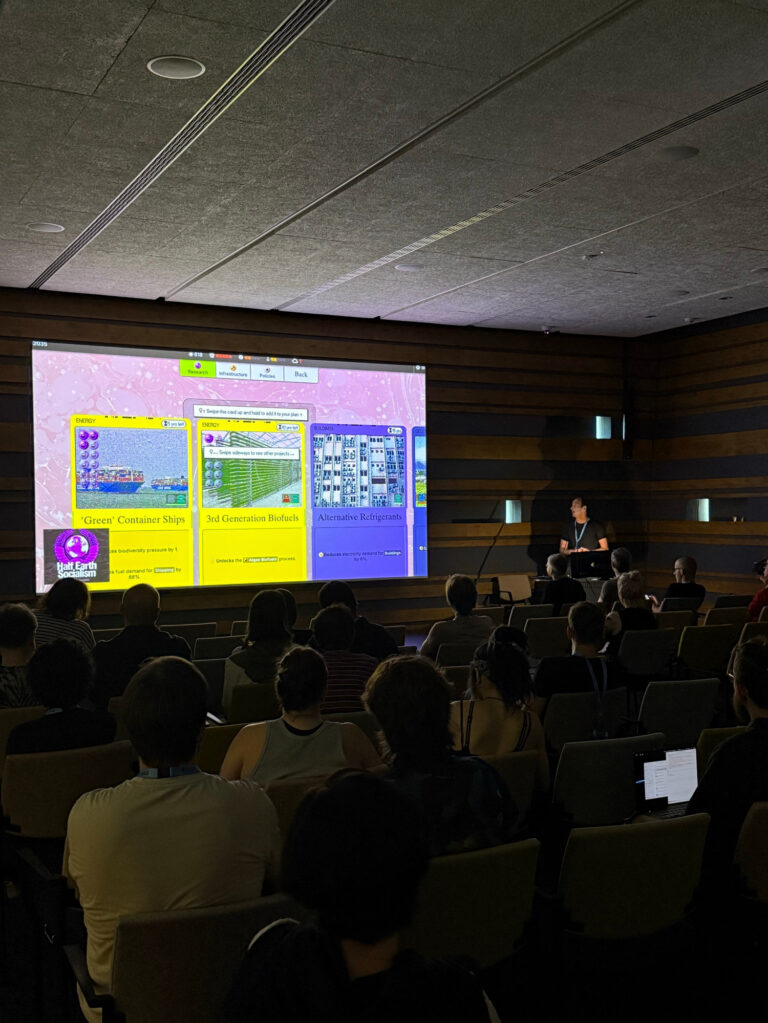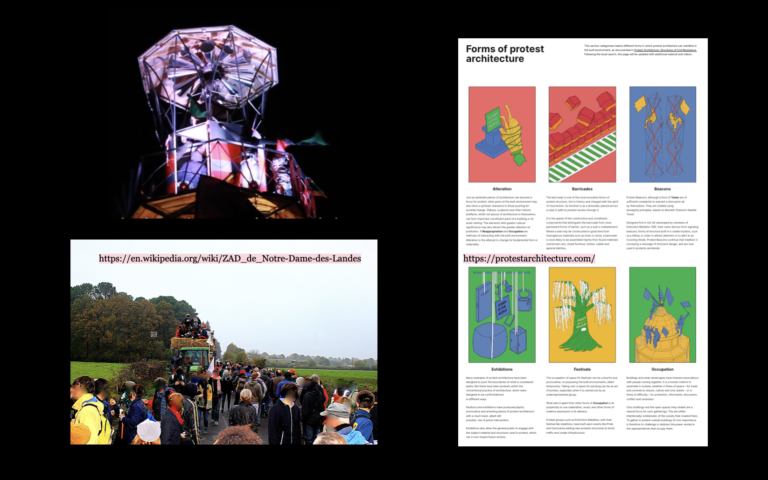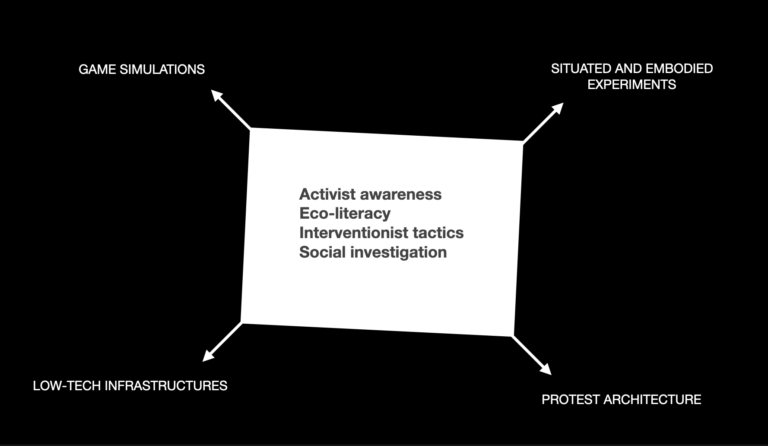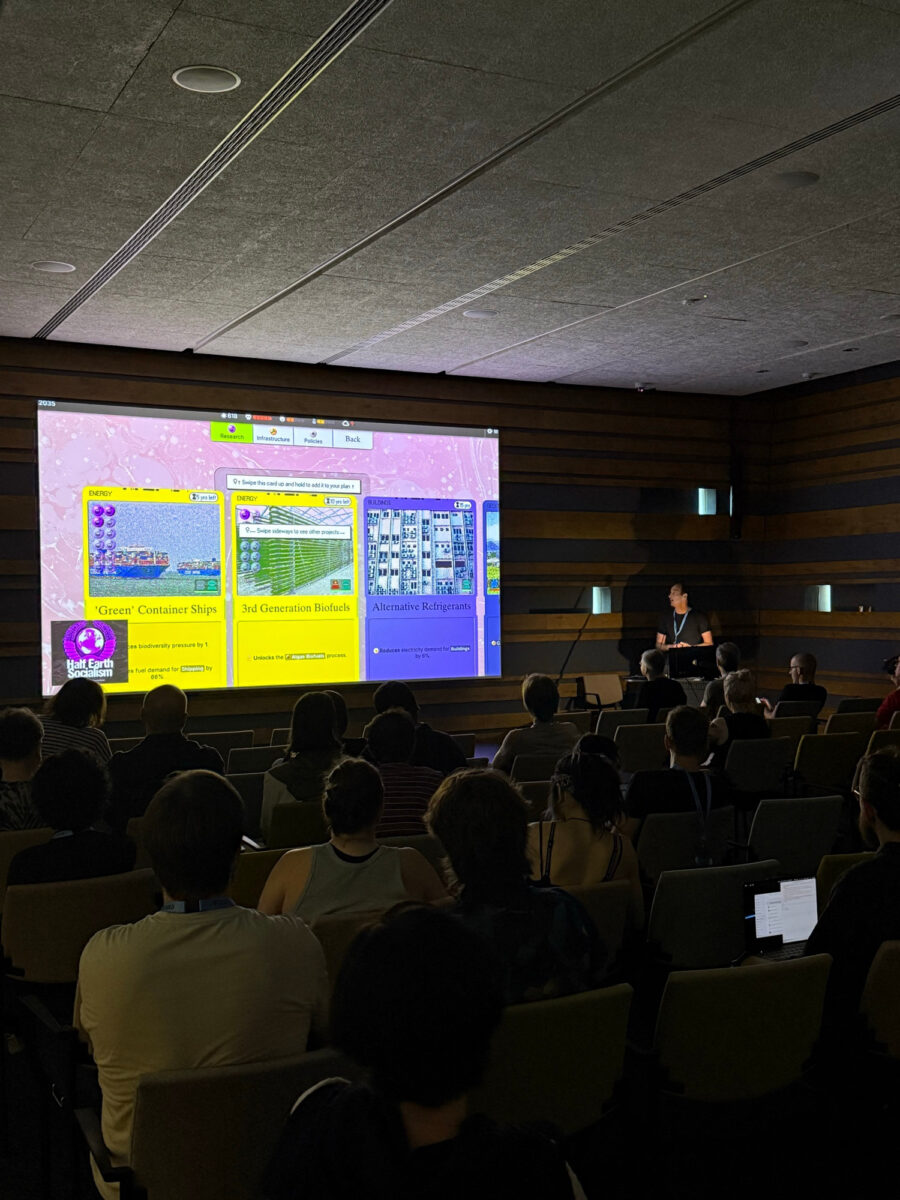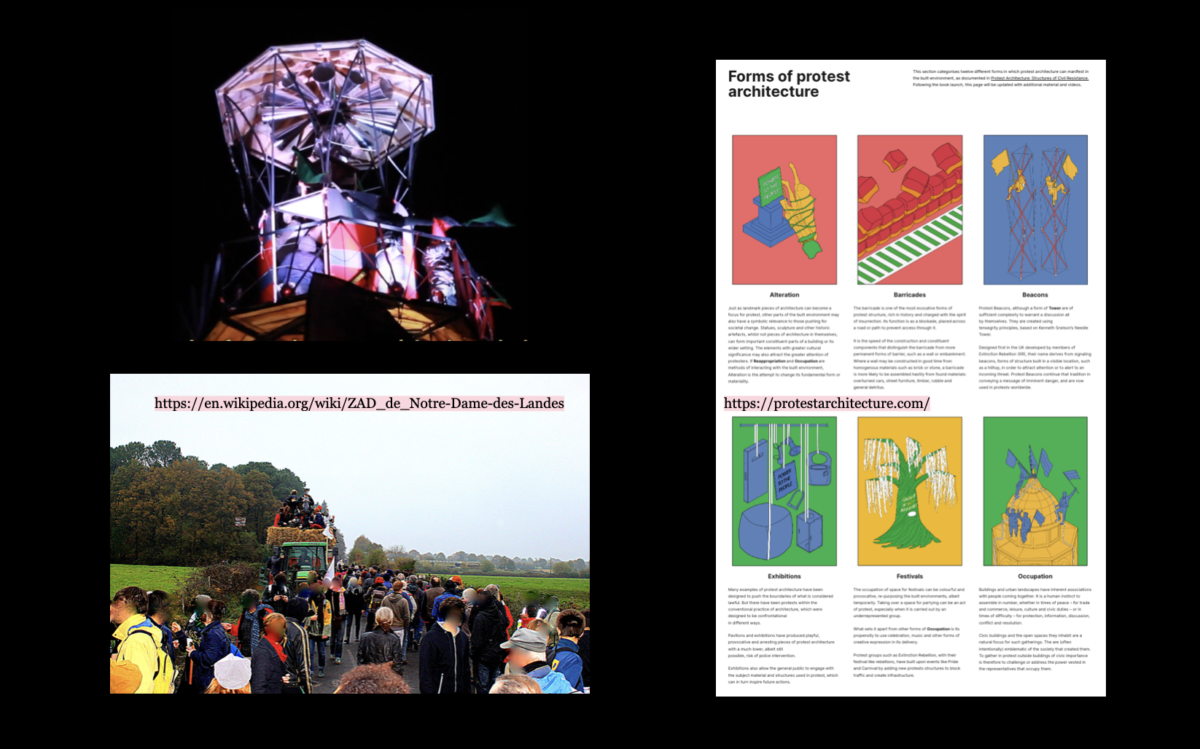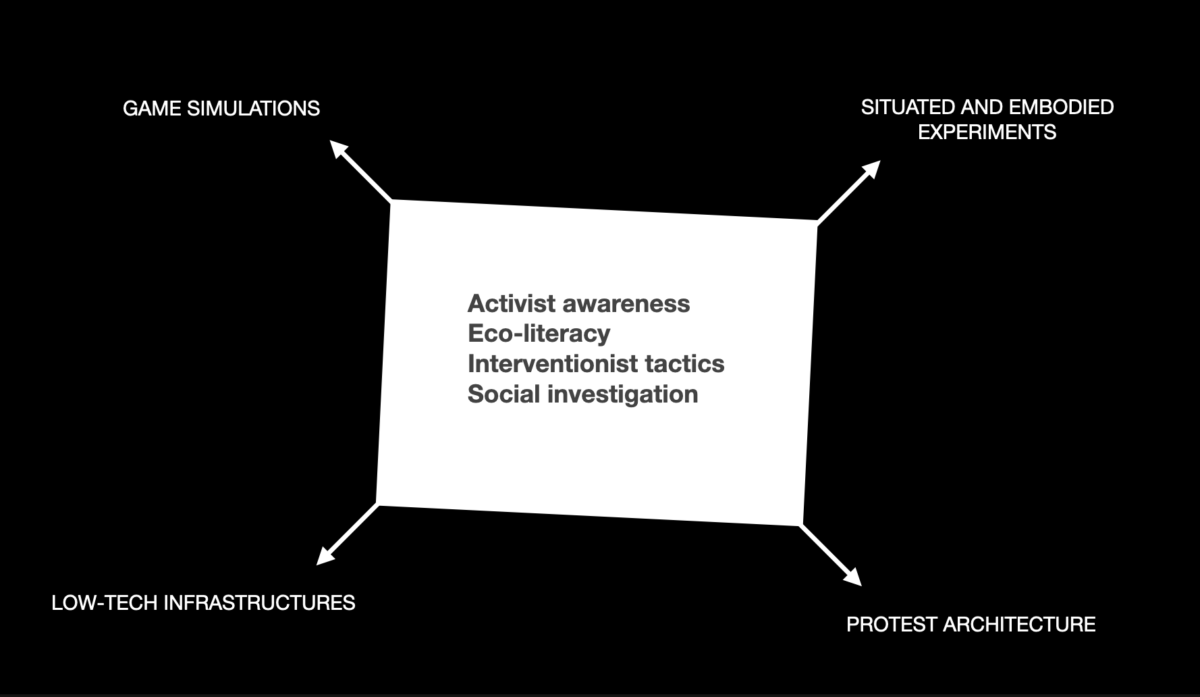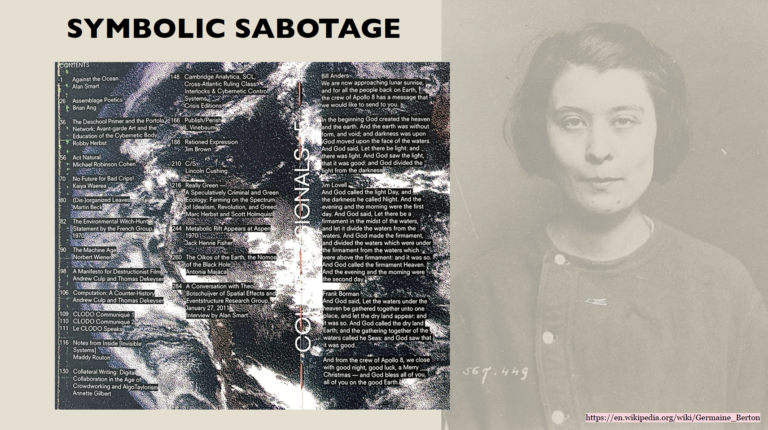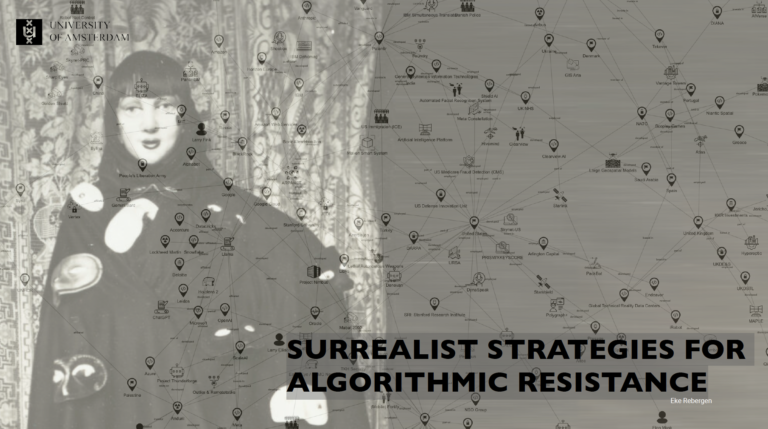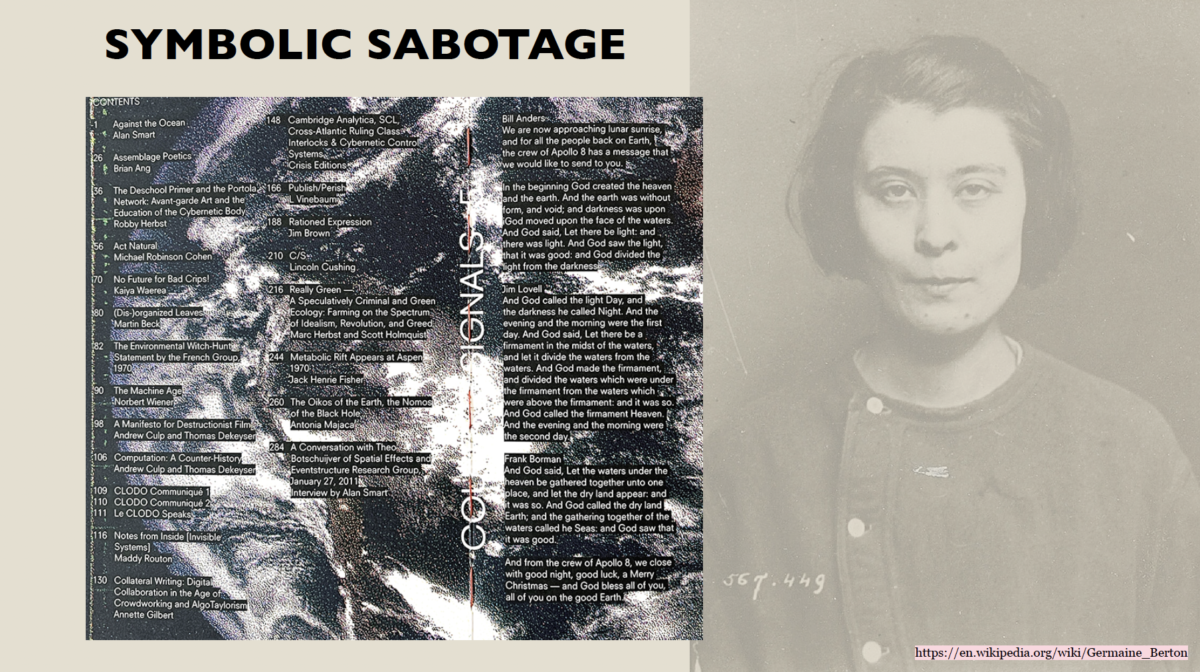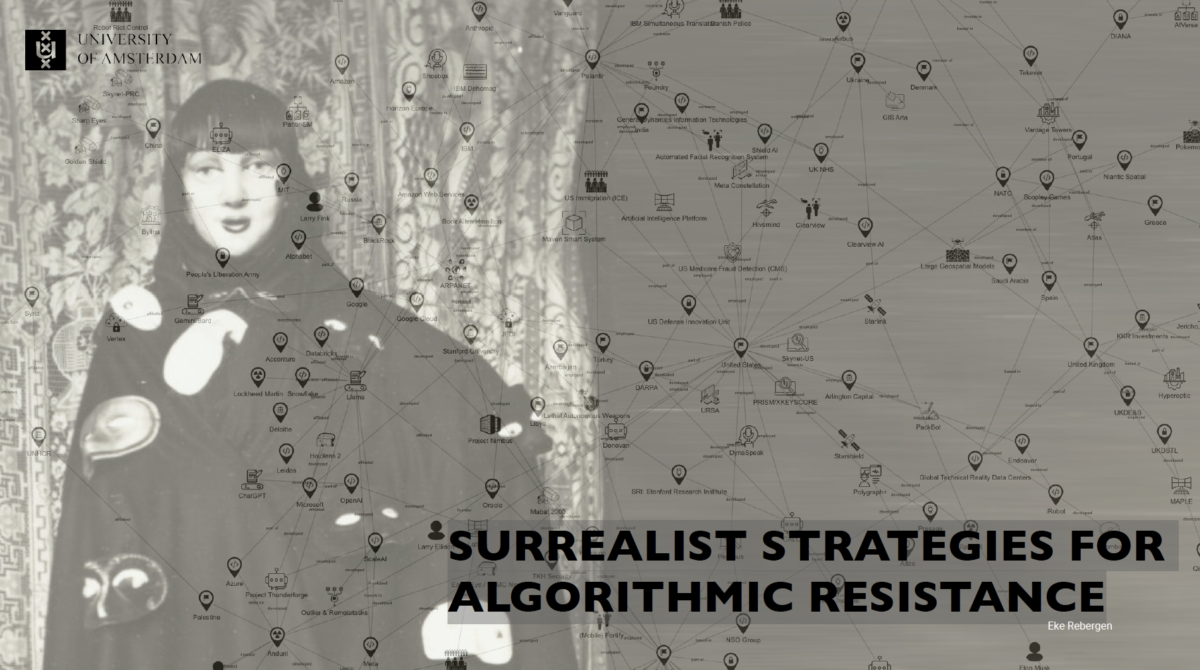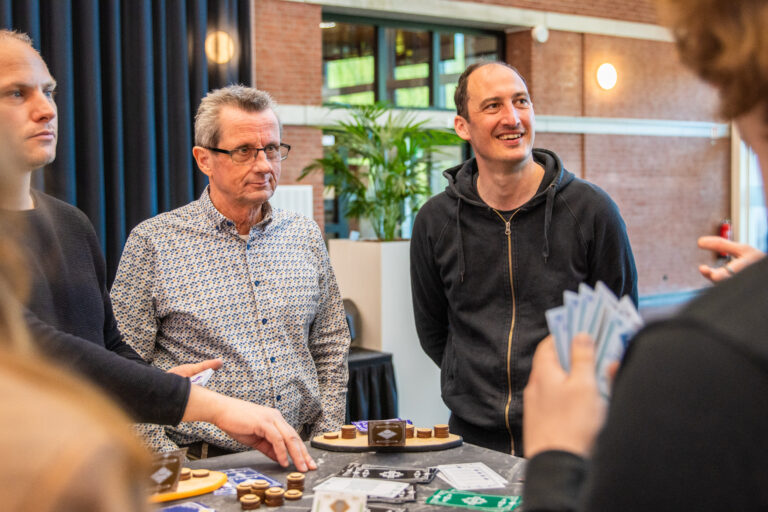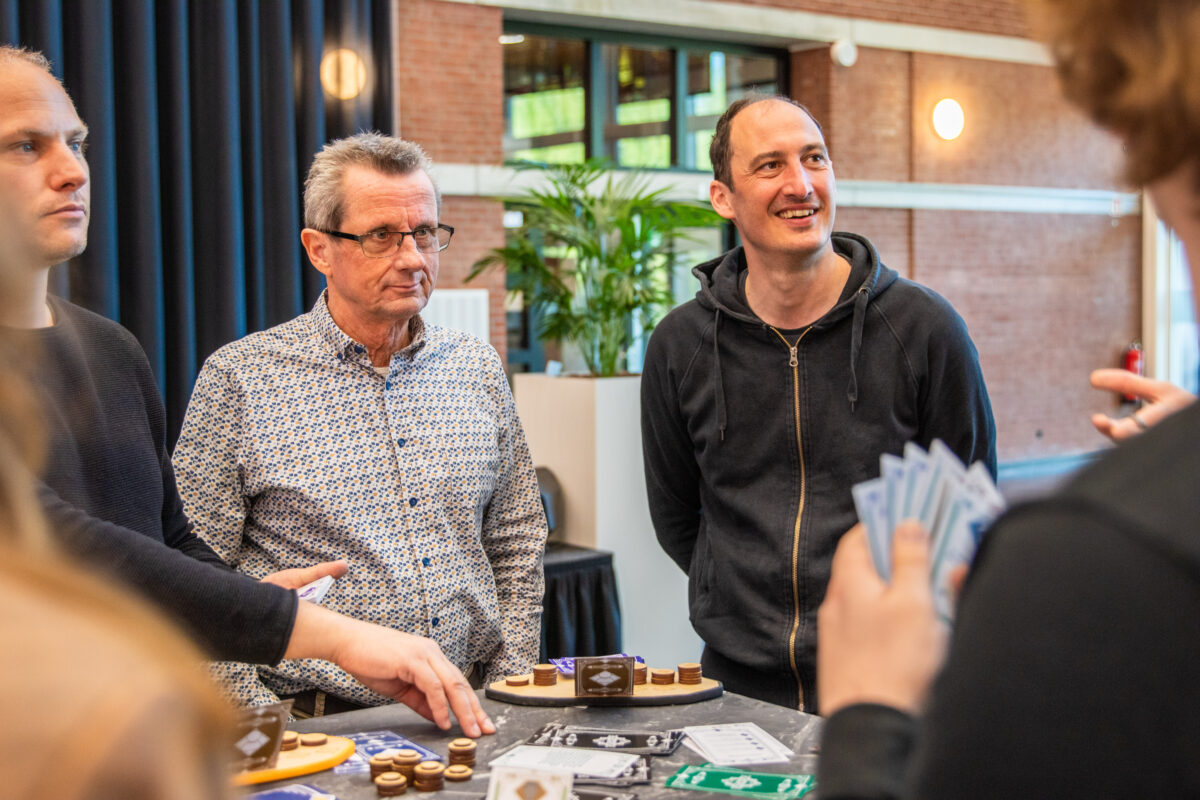How can art and design challenge the technological systems that shape our ecological and social realities? Recently, CARADT researcher Eke Rebergen discussed the development of design criticism and activism towards the impact of new technologies in two international presentations: at xCoAx 2025 – the 13th Conference on Computation, Communication, Aesthetics & X in Dundee, and at ESArts 2025 – the European Sociological Association Midterm Conference on the Sociology of the Arts in Barcelona. In both contributions, Eke explore how artistic and design practices can act as forms of resistance, through ecological engagement and by pursuing symbolic sabotage, and suggested the ways this can inform future art & design research.
xCoAx 2025
13th Conference on Computation, Communication, Aesthetics & X Dundee
Algorithms and Environmental Concerns: From Game Design to Creative Resistance
Recent design projects critically explore the social deployment of algorithmic technologies in relation to pressing environmental concerns. This article analyses a selection of projects that explore more activist and investigative possibilities. Examples include strategic games based on current climate models, workshops exploring alternative blockchain systems for food justice, and occupations targeting the expansion of tech industries. These projects are analyzed for the way they accommodate diverse strands of eco-literacy and activist awareness. It highlights how design can make use of interventionist tactics and contribute to social investigations. The paper contributes to the developing design criticism to guide (design) research towards actively countering the current devastating environmental impact of new technologies.
EsArts 2025
13th Midterm Conference of the European Sociological Association (ESA) Research Network Sociology of the Arts
Surrealist strategies for algorithmic resistance
This contribution explores surrealist strategies for creatively resisting and subverting algorithmic systems. It explores the more explicitly defiant and subversive artistic engagements of surrealists to employ them towards current algorithmic applications. Taking inspiration from surrealist ‘scorning of white supremacy, patriotism, religion, colonialism’ (Rosemont & Kelley) it distinguises strategies for traversing art activism, hacking, as well as critical design and creative forms of protest, to counter the social injustices, military deployment, policing and environmental destruction inherent in what is called ‘fascist AI’ (McQuillan). The surrealist promise to “manifest a conscious revolt of artists against the material conditions and morality imposed on humanity” (Paris Surrealist Group) is actualized, not trough re-creating old debates or melting still more watches, but by capturing the energy, commitment, passion and the political action of the movement and adapting it to our present reality (Polizzotti), which is understood here as entangled with the complexities and reprehensibilities of the proliferating algorithmic technologies. Surrealist experiments of symbolic sabotage and disavowel of work (Susik) are recovered in order to understand and devise new ways to subvert current logic of the creative industries.
